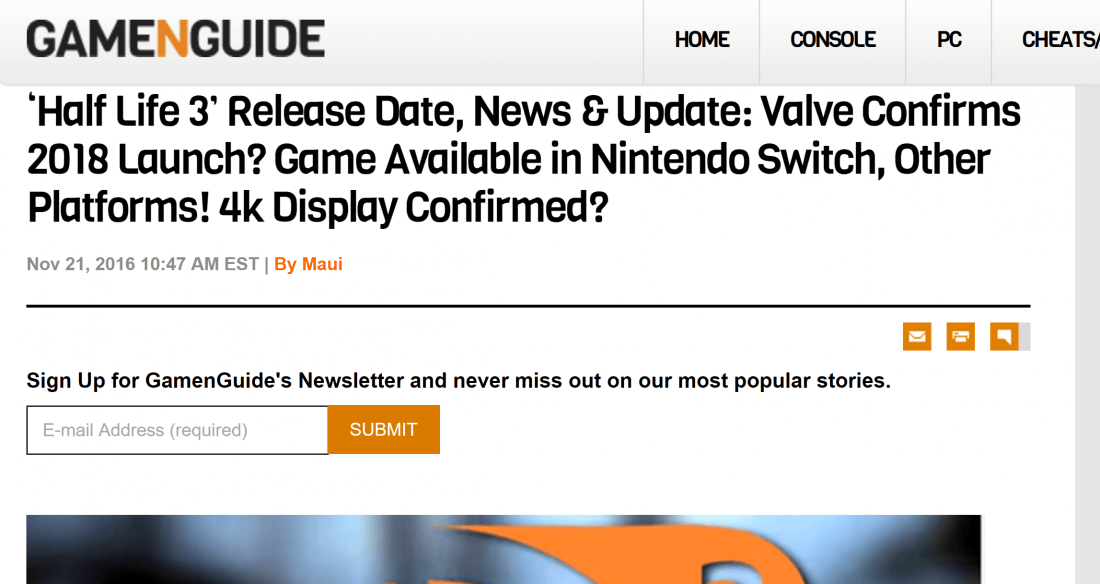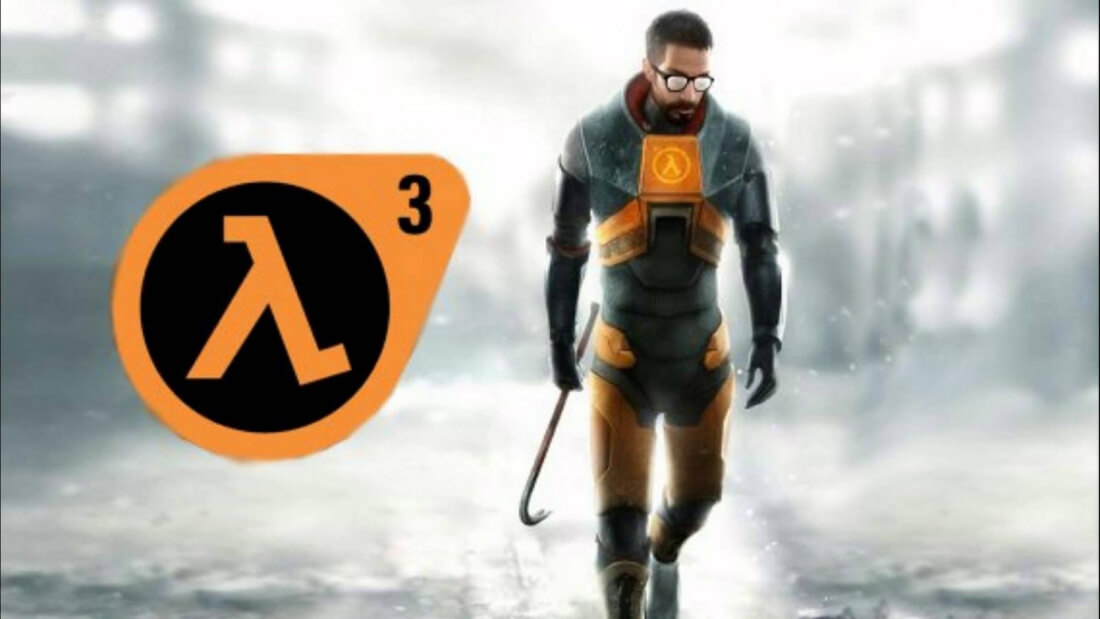With everyone from Mark Zuckerberg to President Obama expressing concerns over the amount of fake news stories appearing online - and the fact that many people believe them - it's easy to forget that this sort of misinformation extends beyond politics. One of the most popular types of fake news items involves video games.
As reported by Kotaku's Jason Schreier, made-up stories about video games have appeared on Facebook and in Google's search results for years, mainly thanks to robots and algorithms surfacing items from unreliable websites.
The problem is at its worst when it comes to big-name game series such as Call of Duty, Fallout, and Grand Theft Auto. There have been a massive number of fake Grand Theft Auto 6 stories this year, ranging from definite release dates to news that the game will include the ability to teleport.
Type Half-Life 3 into Google and you'll see that most of the top results are made up of fake items or, as is sometimes the case, headlines that try to get around the fact they're blatant lies by including a huge amount of question marks. "HALF-LIFE 3 CONFIRMED?"

Much like the fake news stories involving politicians and celebrities, these articles often get thousands of shares on Facebook, despite being untrue. A fake item about Rockstar canceling GTA VI so it can concentrate on GTA V was shared over 2000 times and received more than 10,000 reactions.
So why do people invent these stories? One reasons is because they often come from user-run websites where people can publish whatever they like and get paid based on views and shares. An article about GTA 6's release date is likely to be shared and read by thousands, even if it is untrue.
While fake video game stories aren't going to get the same amount of criticism as the sort of news items that can, allegedly, help influence an election, they're still a problem. Hopefully, Mark Zuckerberg's plan to tackle misinformation on Facebook will go some way to reducing their number on the social network, or at least flag them as being BS.
